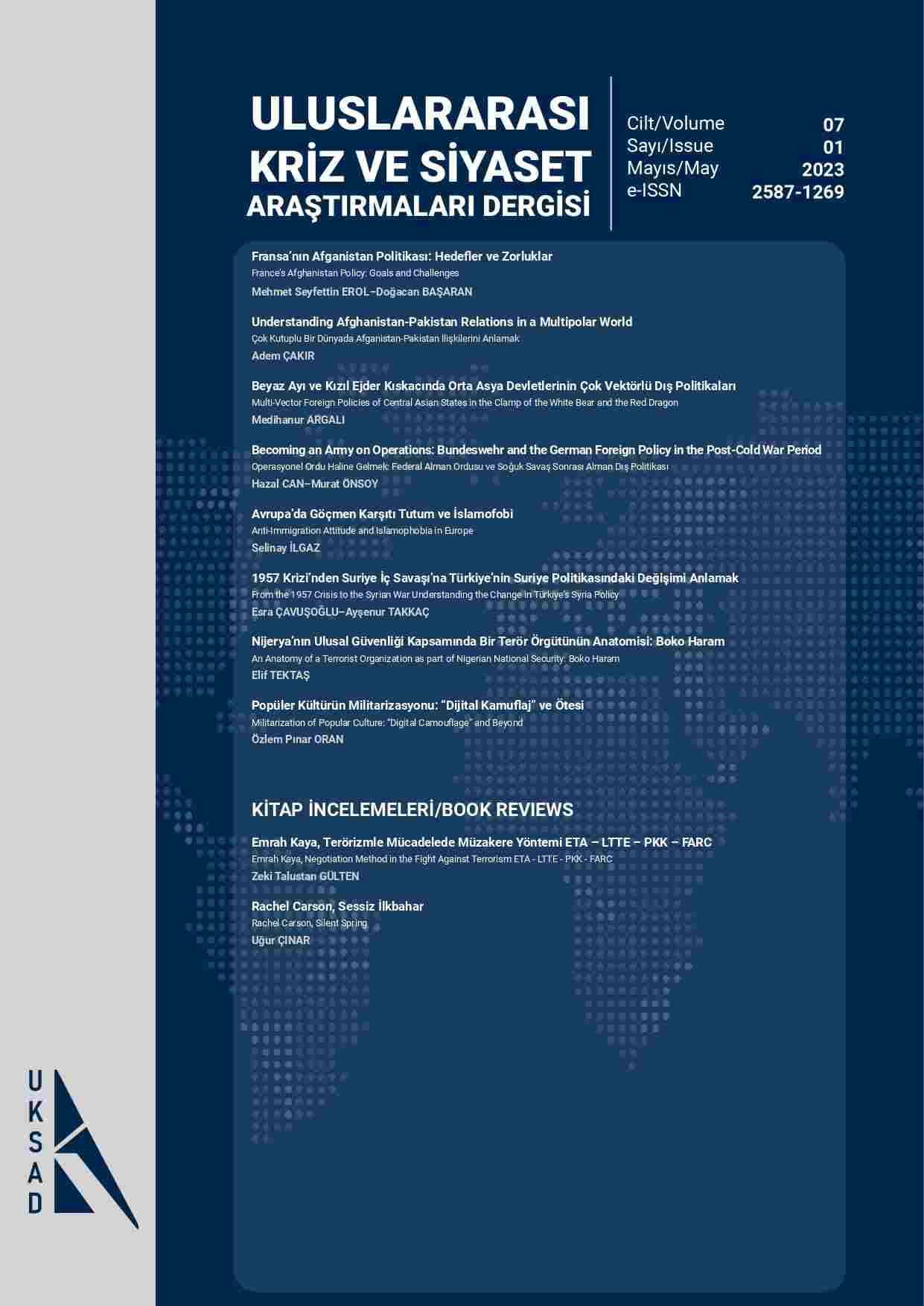Becoming an Army on Operations: Bundeswehr and the German Foreign Policy in the Post-Cold War Period
Becoming an Army on Operations: Bundeswehr and the German Foreign Policy in the Post-Cold War Period
Author(s): Hazal Can, Murat ÖnsoySubject(s): International relations/trade, Security and defense, Military policy, Cold-War History
Published by: Mehmet Seyfettin Erol
Keywords: Germany; Foreign Policy; Bundeswehr; Post-Cold War; Civilian Power;
Summary/Abstract: The present study analyses the increasing involvement of the Bundeswehr in international military operations since the re-unification in 1990 with the aim of displaying the gradual loosening of the civilian power concept and the deeply engrained culture of military restraint in German foreign policy. It is argued that after the reunification, Germany gradually breaks free from the cultural restraints that hindered the utilization of military power in foreign policy. In this regard, the first step was Bundeswehr’s involvement in multilateral, non-combat, peace-keeping and peace-making operations under the auspices of the NATO and the UN throughout the 1990’s. The second step came with Bundeswehr’s involvement in the Kosovo War, which was Germany’s first ever participation in a large scale combat operation since the World War II. Since then, the limits of the German culture of military restraint have been pushed further and the Bundeswehr has been actively deployed across the globe, signaling a more assertive role for Berlin in international affairs. This article finally asserts that, as evident in the Zeitenwende (historic turning point) speech of the German Chancellor Olaf Scholz, the Russian occupation of Ukraine in early 2022 has opened a new era in German foreign and security policy, in which the Bundeswehr is likely to play a greater role.
Journal: Uluslararası Kriz ve Siyaset Araştırmaları Dergisi
- Issue Year: 7/2023
- Issue No: 1
- Page Range: 106-139
- Page Count: 34
- Language: English

